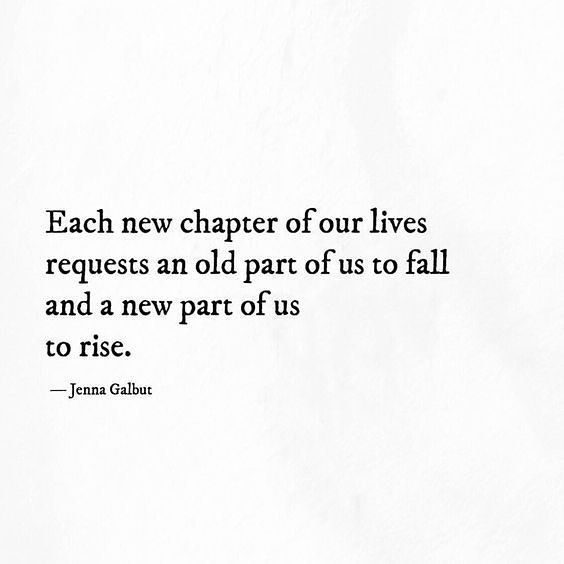When you enter a new season of life, you need to let go of the old habits that don't work in this new season.
Let's say, you decided to commit to practicing your English every day, and a month later you find yourself on a long business trip in a new country.
Does this mean that there's no way for you to continue practicing while you're on this trip?
To me, this would mean that I need to adapt my practice routine. I always ask myself, "What can I do in my current environment to keep moving in line with my authentic desires?"
I will not wait for my environment to change for me to continue eating healthy, taking care of my body, or improving my speaking and thinking skills. "Perfect conditions" may take forever to materialize. I find it more fulfilling to create my own environment, in which I can learn and look forward to doing my exercises.
If you're on a long business trip, organize your routine accordingly. You will probably spend a lot of time on the road. What can you do on a plane? For example, I like to write. Prepare some writing and listening exercises before your flight so that you can practice without distractions. I do not recommend reading or speaking exercises. You'll most likely find it impossible to practice your speaking skills on a plane, and reading only works if you read out loud, which, again, is not easy to do on a plane.
If you drive a lot, make sure you have something to listen to. Don't listen inattentively. Don't turn on a podcast "to have some English play in the background". Be deliberate with what you choose to listen to. Listen to the stories you have recorded previously and give yourself feedback. Listen to 30-60-second audio pieces a few times and repeat what you're hearing. Listen to the news on the radio and practice repeating the intonations. You can also use the time in the car to do your speaking exercises. For example, practice thinking out loud and record yourself. Then listen to yourself - are you being clear? If not, self-correct, record it again. You'll know exactly how to do better for your message to sound clear when you get to hear yourself.
It's a matter of choice.
When you choose to become a better learner, you commit to creating your environment, in which you can learn better.
You stop waiting to be taught. You actively seek and create opportunities to learn.
Don't draw the divide line between "life" and "learning". So many people talk about life-long learning, but they find it impossible to integrate learning into their life. They feel like they have to stop "living" to start "learning". It's not true, because the purpose of learning is to understand the self.
You were made to believe that learning is a "separate" area of life, or that it is separate from "living". Choose to integrate, not to separate. When you enter a new season of life, you need to let go of some of the old ways, but it doesn't mean that you have to give up on yourself and your practice entirely.




